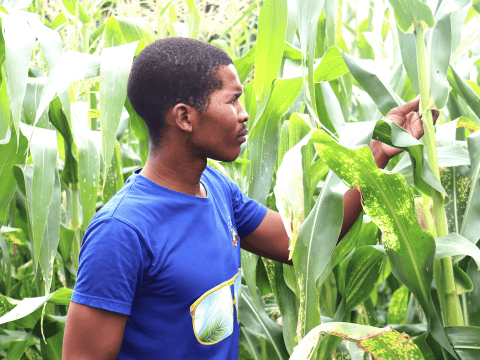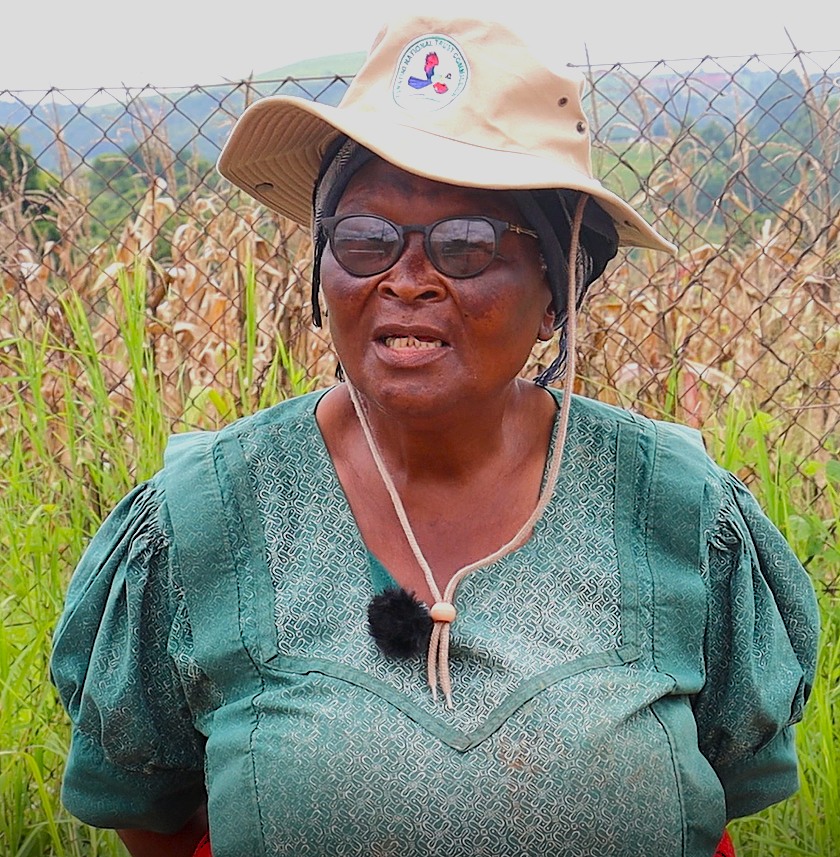Empowering Farmers for a Food-Secure Future

Sustainable land management is crucial for achieving food security and ensuring that communities have enough food to thrive. Recognising this, World Vision, under the Mbuluzi Ecosystems Restoration Project, hosted an interactive workshop that brought together farmers from Ludzeludze, Mbekelweni, and Sihhohweni, in the Manzini Region of Eswatini, to engage with Extension Officers from different entities.
The five-day workshop aimed to strengthen the capacity of Extension Officers in facilitating Farmer Field Schools. Through participatory sessions, the officers engaged directly with farmers, listening to their challenges and discussing practical solutions to improve agricultural practices.
For many farmers, the training provided new insights into the effects of climate change on crop production. Gogo Maseko, a farmer from Mbekelweni, shared her experience, highlighting how the engagement with Extension Officers had opened her eyes to the challenges posed by changing weather patterns.
“I did not know much about climate change,” she admitted. “Just a few weeks ago, the sun was so hot that I could not even weed the fields. With the knowledge I have now, I will do things differently.”

Another farmer from Mbekelweni, Menzi Langwenya, found the interaction with the Extension Officers very insightful. He learned about the importance of soil testing and how it helps determine the right crops to grow in a particular type of soil.
“This will help me increase produce and yield quality products that will be appealing to the market,” he said.
By equipping Extension Officers with the right skills and knowledge, World Vision is ensuring that farmers receive the necessary guidance to adopt sustainable land management practices. This approach not only strengthens agricultural productivity but also enhances the livelihoods of families, making food security a reality for many communities.
Through ongoing capacity-building efforts, the Mbuluzi Ecosystems Restoration Project continues to empower both farmers and Extension Officers, fostering resilience in the face of climate change and contributing to a more sustainable and food-secure future. The Project is a four-year (2023-2027) initiative funded by the Global Environment Facility (GEF), supported by United Nations Environment Programme (UNEP) and implemented by Eswatini National Trust Commission (ENTC) in collaboration with the Ministry of Agriculture, the Ministry of Tourism and Environmental Affairs’ Department of Forestry, the Ministry of Tinkhundla Administration and Development (MTAD), and World Vision Eswatini.
The goal of this project is to improve food security, thus ensuring there is #ENOUGH food for all, and natural resource management in the Mbuluzi landscape and contribute to rural livelihoods, national, regional and global environmental benefits. The project’s objective is to enhance the conservation of an eco-resilient and highly productive Mbuluzi River landscape and effectively managed protected areas that provide critical ecosystem goods and services.